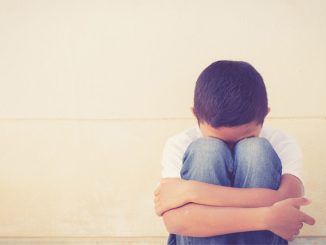
It is no secret that we have been bombarded recently with bad news of natural disasters and horrific tragedies. As catechists, it can be difficult to maintain a spirit of hope. We must also be aware of the effect these events are having on the young people we teach. We need to be ready to respond to some of the questions and comments they may have while at the same time keeping in mind that we are not trained professional counselors; our job is to formulate a response within a faith context.
One suggestion I have is to pray a Rosary with the young people and dedicate each decade to those affected by one of the recent tragedies or disasters:
- Victims of hurricanes in Texas, Florida, Puerto Rico, and the Caribbean
- Victims of wildfires in the Northwest
- First responders in all tragedies and disasters
- Earthquake victims in Mexico
- Shooting victims in Las Vegas
Here are some tips for speaking to young people about tragedies and disasters that are no doubt affecting them and causing them to ask questions. I’ve posted these before, and it saddens me to have to share them again. However, I recognize that many of you are new to the ministry of catechesis, and those of us who are veterans can use the refresher.
- Encourage younger children to seek physical comfort from their parents and relatives. Hugs and hand-holding from parents can provide children with the comfort and security that they need.
- Provide reassuring and appropriate smiles without being glib.
- Reassure your children that you are there to take care of them and that they are safe in your company.
- Express your own feelings of confusion, sadness, and fear, but do so in a way that shows you are relying on prayer and faith to cope during moments that you don’t understand.
- Provide structure for your students. Children find security in consistency, especially when faced with such unpredictable disasters. Reliance on traditional prayers and forms of prayer such as the Rosary can provide great comfort for children.
- Emphasize familiar routines and ritual.
- Play some soothing music as the children work, and speak in a slow, calm, quiet voice.
- Invite (but do not pressure) children to talk about current events if they so wish. This gives them a sense of control and can help them to sort out their feelings.
- Provide a little more time than usual for children to relax, and do some activity that is therapeutic, such as coloring or playing with modeling clay. Older children can be engaged in physical activities (like a game) that provide some emotional release.
- Children feel powerless in the wake of unpredictable tragedies. Be sure to talk about and model peaceful resolutions to conflict as a way of giving children a sense of control in difficult situations.
- Some children may react to tragedies by behaving aggressively. Emphasize the need to find and use alternatives to violence as a way to solve conflicts.
- Keep your perspective and avoid expressing anger and vindictive emotions about violent tragedies. Help young people to avoid making inappropriate assumptions by using labels based on ethnicity, religious background, etc.
- Young people may show signs of stress following tragedies and disasters. Keep an eye open for changes in behavior. Very young children may resort to thumb-sucking, clinging, and isolation from other children. Older children may show signs of irritability, aggression, lack of focus, and other changes in behavior. All of this is natural as they process their anxiety and fear, so show patience with them.
- Pray together for the victims, their families, for those who were injured, and for first responders.
Inspired by and adapted from “When Disaster Strikes: Helping Young Children Cope” by Jane M. Farish, an NAEYC (National Association for the Education of Young Children) brochure.
Finally, here are a couple of helpful links to speak to young people specifically about the recent events in Las Vegas:
Project Youth Ministry resources for talking to teens about the recent tragedy in Las Vegas
Psychology Today article for talking to kids about the recent tragedy in Las Vegas
I fervently hope and pray that this is the last time I will need to address this topic, but the truth is we live in a world filled with brokenness, which is why we turn to our Lord and Savior, Jesus Christ, to restore us to grace and fill us with hope.





These tragedies also show us all those people who went to those people in need of help, donating their time talent and resources to their fellow men and women and children
Exactly, Judy, which is why I suggest including prayer for first responders as well as victims.